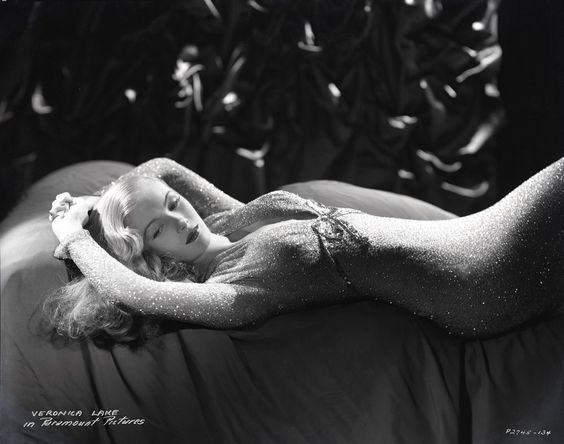Listen to this episode on Apple Podcasts.
Veronica Lake had the most famous hairdo of the 1940s, if not the twentieth century. Her star turn in Preston Sturges’ Sullivan’s Travels and her noir pairings with Alan Ladd made her Paramount’s biggest wartime draw behind Hope and Crosby, but behind the scenes, Lake was a loner with a drinking problem who didn’t give an F about Hollywood etiquette. Bankrupt and without a studio contract, in the early 1950s she consciously quit movies. She claimed she left Hollywood to save her own life -- so how did she end up dead at 50?
Show notes:
Sources specific to this episode:
In researching this podcast, I always try to approach my sources with due skepticism, and in choosing details to include in these episodes, I’m very careful to note facts that are disputed or reported differently by different sources. If I have any doubt about whether or not an incident really occurred, I’m either transparent about my doubt, or I just won’t include it in the episode. In the case of Veronica Lake, there are only two books available to use as biographical sources: there’s Lake’s autobiography, Veronica, which was ghost-written and authorized by a woman who was penniless and whose life was dominated by the alcoholism that would soon kill her; and a book called Peekaboo by Jeff Lenberg, which uses as a main source Veronica’s mother, with whom she had an extremely combative relationship. This latter book, at least in the edition I purchased, is rife with typographical errors, and is also without footnotes or a section on sources. If I were to recommend either of these books, I would have to go with Veronica; unfortunately it is out of print, the copies on the open market are quite expensive, and it seems that the two copies once held by the Los Angeles Public Library system have gone missing.
It would be a stretch to call it a "source," but my understanding of the psychiatric landscape and the potential life of treatment awaiting the mentally ill in the mid-20th century was informed by Luke Dittrich's riveting Patient H. M.: A Story of Memory, Madness, and Family Secrets.
Other sources:
“The Sad Tragic Fate Of Veronica Lake” by Dick Siegel, National Enquirer, January 22, 2015
“Working Toward Veronica Lake” by Laura Holson, New York Times, January 7, 2009
“Lake: To Work . . . and to Live” by Bill Gale, New York Times, August 24, 1969
Veronica Lake Biography, Turner Classic Movies, TCM.com
Patient H.M.: A Story of Memory, Madness, and Family Secrets by Luke Dittrich
Credits:
This episode was edited by Sam Dingman, and produced by Karina Longworth with the assistance of Lindsey D. Schoenholtz. Our logo was designed by Teddy Blanks.




